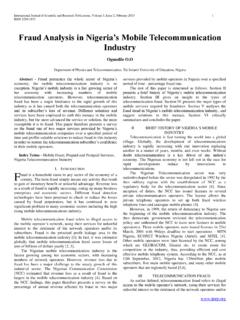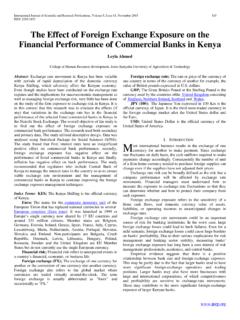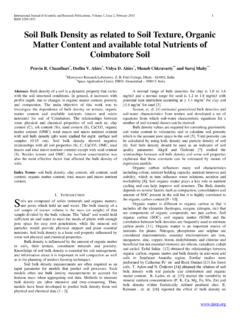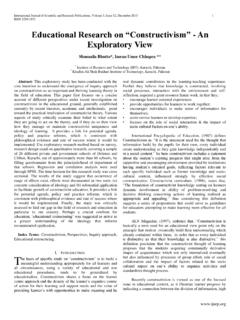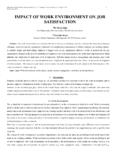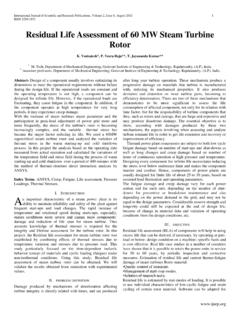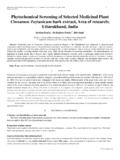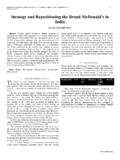Transcription of Prospects and Challenges of Corporate Governance …
1 International Journal of Scientific and Research Publications, Volume 3, Issue 5, May 2013 1 ISSN 2250-3153 Prospects and Challenges of Corporate Governance in Ghana Otuo Serebour Agyemang*, Emmanuel Aboagye**, Aaron Yao Ofoe Ahali** * Department of Economics and Management, University of Ferrara, Italy ** University of Oslo, Norway ** Coventry University, UK Abstract- The relevance of Corporate Governance principles in the management of Corporate organisations cannot be underestimated. The increasing influence of principles of Corporate Governance across the globe has been greatly linked to the recent Corporate frauds and scandals. These frauds and scandals largely resulted from the failure of authorities of countries to effectively implement the legal and regulatory frameworks pertaining to Corporate Governance . Ghana is archetypal in regards to the failure of authorities to enforce the laws and regulations in relation to Corporate Governance .
2 During the enforcement of the laws and regulations of Corporate Governance , some vitally important issues are either overlooked or deliberately deserted. This paper attempts to examine the legal and regulatory framework of Ghana in regards to Corporate Governance and points out the importance of complying with good Corporate Governance . It also highlights prevailing issues of Corporate Governance practice in Ghana. It finally makes some recommendations, which are considered the major contribution of this paper. Index Terms- Prospects , Challenges , Corporate Governance , Ghana I. INTRODUCTION ood Corporate Governance has been highlighted to be vital to Corporate organisations especially in transition and emergent economies. The effectiveness of a company s Corporate Governance structure has a far-reaching effect on how well it functions. A corporation that embarks on good Corporate Governance practice offers essential information to its equity holders and other stakeholders to minimize information asymmetry.
3 Financial scandals that are currently happening across the globe and the recent collapse of major Corporate organisations in the US, Europe and other parts of the world have made Corporate Governance to take on the centre stage for academic and professional discourse. Thus what does Corporate Governance really mean? Corporate Governance could be defined as the application of a set of powerful micro-policy instruments in an organisation to ensure an efficient and effective use of resources in achieving the main objectives of its capital providers, succeed in the competitive market, as well as maximizing its positive influence on other stakeholders and at the same time, minimizing its negative impacts on them (Castellini & Agyemang, 2012). Corporate Governance is the connection among various participants-such as Chief executives, shareholders, management and employees- in determining a firm s direction and performance (Monks & Minow, 1996).
4 It has also been defined by Lamm (2010) as the use of formality, thoroughness and transparency to an amalgamated structure of Corporate policy in order to ensure that only prudent risks are taken by the Corporate organisation to achieve shareholder value as well as to succeed in the market. From the aforementioned definitions, we contend that Corporate Governance is represented by laid down structures and procedures to mitigate the level of agency costs in a Corporate organisation. The capability of a Corporate organisation to entice or attract capital providers is subject to how effective its Corporate Governance practice is, since this will induce capital providers to invest with the hope that, they are investing in a credible company that will safeguard their investments, and in the end reward them appropriately. By all, not to be rewarded today or tomorrow, but also to be rewarded in five, ten, twenty, or fifty years later.
5 Also, an effective Corporate Governance practice improves the reputation of a Corporate business by making it more attractive to customers and suppliers (Lipman & Lipman, 2006). Kaen (2003) posits that the actual value of a Corporate business is what capital providers or investors will make available to the Corporate business on the basis of its anticipated returns to its owners. Currently, countries are encountering different Challenges in their attempt to developing/designing effective Corporate Governance principles that can be actively implemented as well as reliable. These Challenges if not appropriately dealt with could thwart the administration of Corporate organisations and other vitally important institutions in the concerned economy. In order to overpower these Challenges , the constituent elements of good Corporate Governance are needed to be appropriately highlighted.
6 The common constituent elements of good Corporate Governance are efficiency, probity, responsibility, transparency and accountability (CACG Guidelines, 1999). However, due to the prevailing economic meltdowns across the globe, there is no doubt that the implementation of the principles of good Corporate Governance is vitally significant to ensuring good Corporate Governance in every economy. It is against this backdrop that this paper attempts to highlight some confronting Challenges in regards to Corporate Governance practice in Ghana. It also brings out some recommendations that can help improve Corporate Governance practice in Ghana. The remainder of the paper is as follows: section II examines the legal and regulatory framework pertaining to Corporate Governance in Ghana. The prevailing condition of Corporate Governance is highlighted in section III.
7 Section IV G International Journal of Scientific and Research Publications, Volume 3, Issue 5, May 2013 2 ISSN 2250-3153 addresses the importance of Corporate Governance principles. Finally, section V, deals with the conclusions and recommendations of the paper. II. LEGAL AND REGULATORY FRAMEWORK OF Corporate Governance IN GHANA The regulatory framework for an effective Corporate Governance practice in Ghana is contained in the Companies code 1963 (Act 179), Securities Industry Law 1993 (PNDCL 333) as revised by the Securities Industry (Amendment) Act, 2000 (Act 590) and the listing regulations, 1990 ( 1509) of the Ghana Stock Exchange. In the context of this paper, the regulatory framework of Ghana for effective Corporate Governance has been divided into six major sections, namely: 1) the mission, responsibilities and accountability of the board; 2) committees of the board; 3) relationship to shareholders and stakeholders, and the rights of shareholders; 4) financial affairs and auditing; 5) disclosures in annual reports; and 6) code of ethics.
8 It may be useful now to proceed to discuss in detail the various sections of the regulatory framework of Ghana. Section i: The mission, responsibilities and accountability of the board of directors This section specifies the principal objective of the board of directors of a Corporate entity. The board of directors is to ensure that the Corporate entity is properly managed in order to safeguard and enhance stockholders value and to meet the Corporate entity s obligation to: 1) stockholders; 2) the industry in which it operates; and 3) the law. However, it also states that the interests of other stakeholders are significant as a derivative of the duty of stockholders. Furthermore, this section brings out the primary responsibility of the board of directors. That is, they are to ensure that good Corporate Governance prevail within them. This section also clearly states the principal duties of the board: 1) The strategic guidance of the Corporate entity in keeping its goals.
9 2) Overseeing or supervising the management of the business. 3) Identification of risk as well as the implementation of systems that manage risk. 4) Succession planning and the appointments, training, remuneration and replacement of senior management. 5) Supervision of internal control system. 6) Maintenance of the Corporate entity s communications and information dissemination policy. The principle also reflects the sovereign rights of shareholders, since the boards of directors, who are to ensure that effective Corporate Governance prevails, are accountable to shareholders. Again, this section of the principle brings out how the size of the board should be. It states that, the board s size of every Corporate entity ought to be arrived at with the belief of promoting the board s effectiveness as well as ensuring appropriate representational needs. However, no specific number is set with regard to membership but goes on to mention between 8-16 members.
10 The method of appointment to the board should be formal and transparent, and that shareholders should be provided with adequate information on all persons to be appointed. These information includes: name, age and country of residence; whether appointment is executive and if so the specific area of responsibility; working experience; shareholding in the Corporate entity as well as its subsidiaries; family ties with any director and/or substantial stockholder of the Corporate entity; and any conflict of interest. The leadership structure of the Corporate organisation is clearly stated in this section of the principle. It states that there should be a separation of the roles of the chairperson and the CEO. In addition, in the event of this separation, the relationship between the CEO and the Chairperson with their respective responsibilities should be formally defined or stated.
